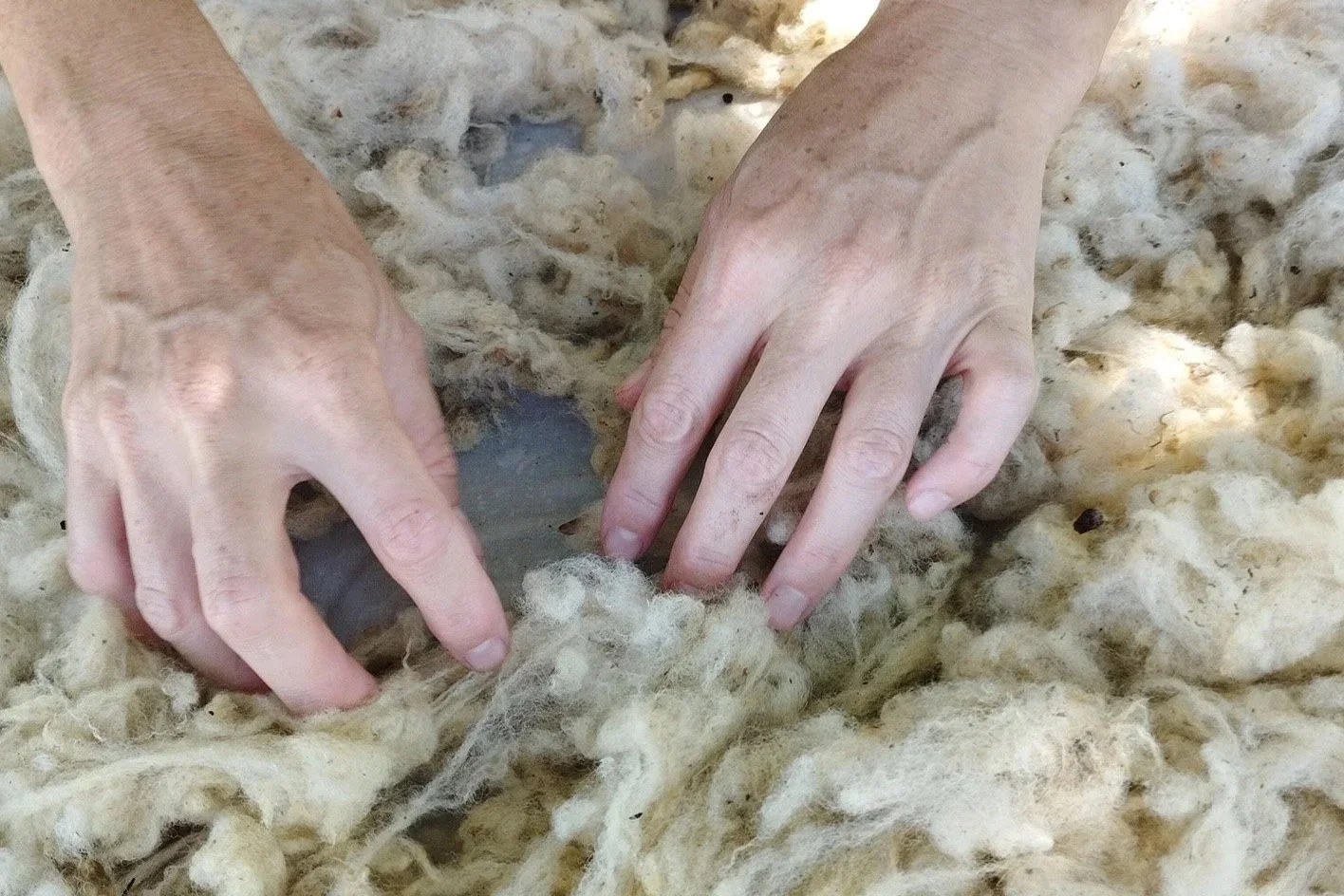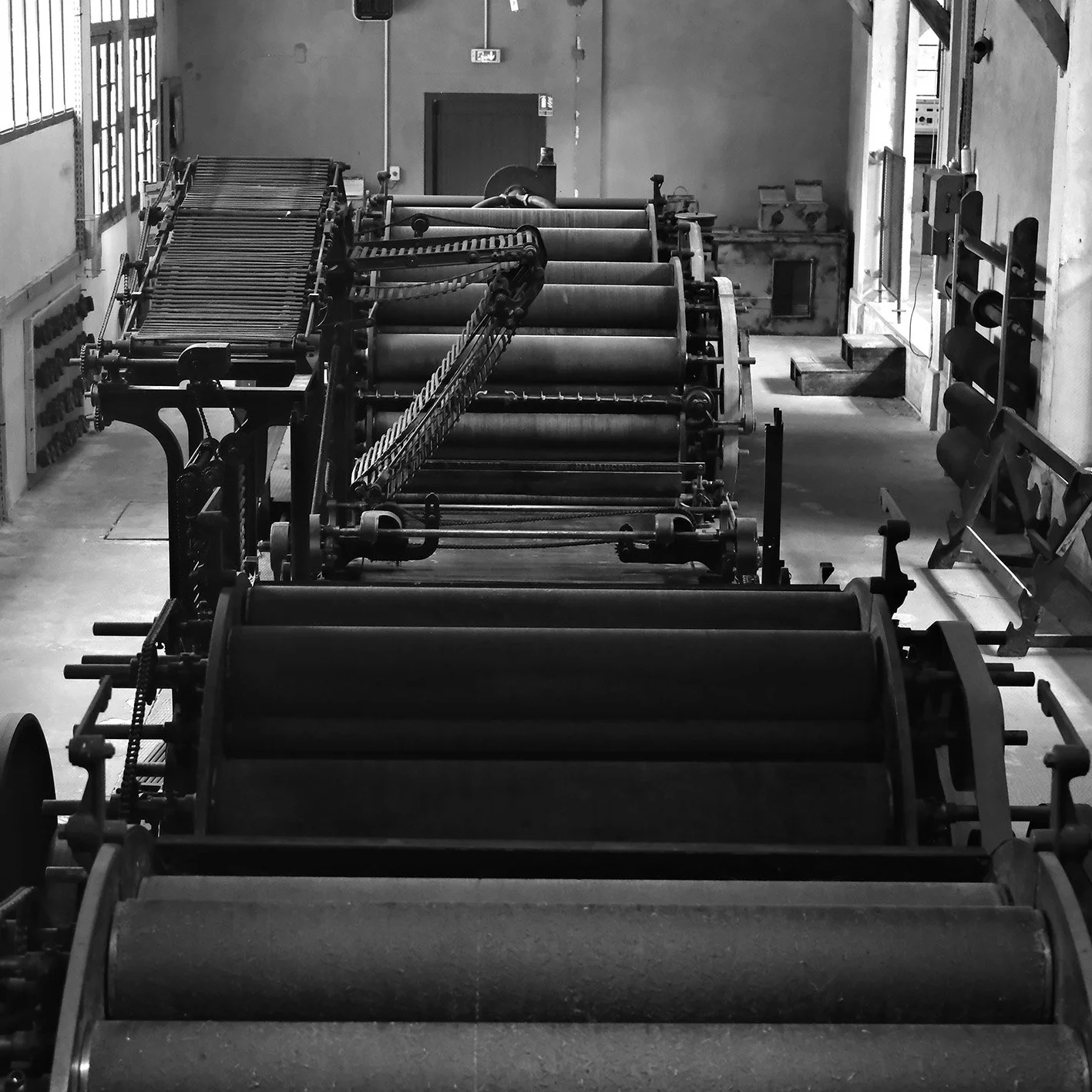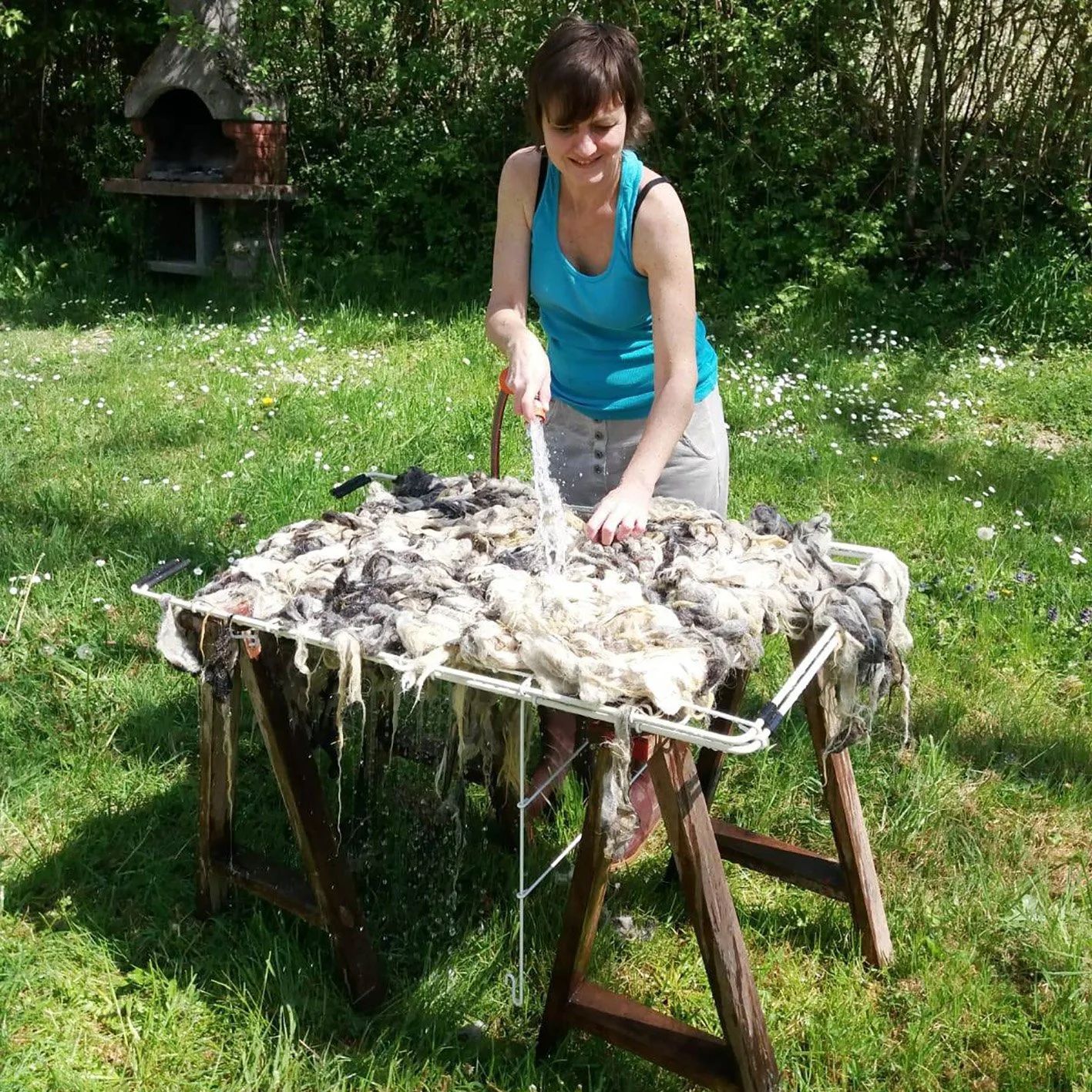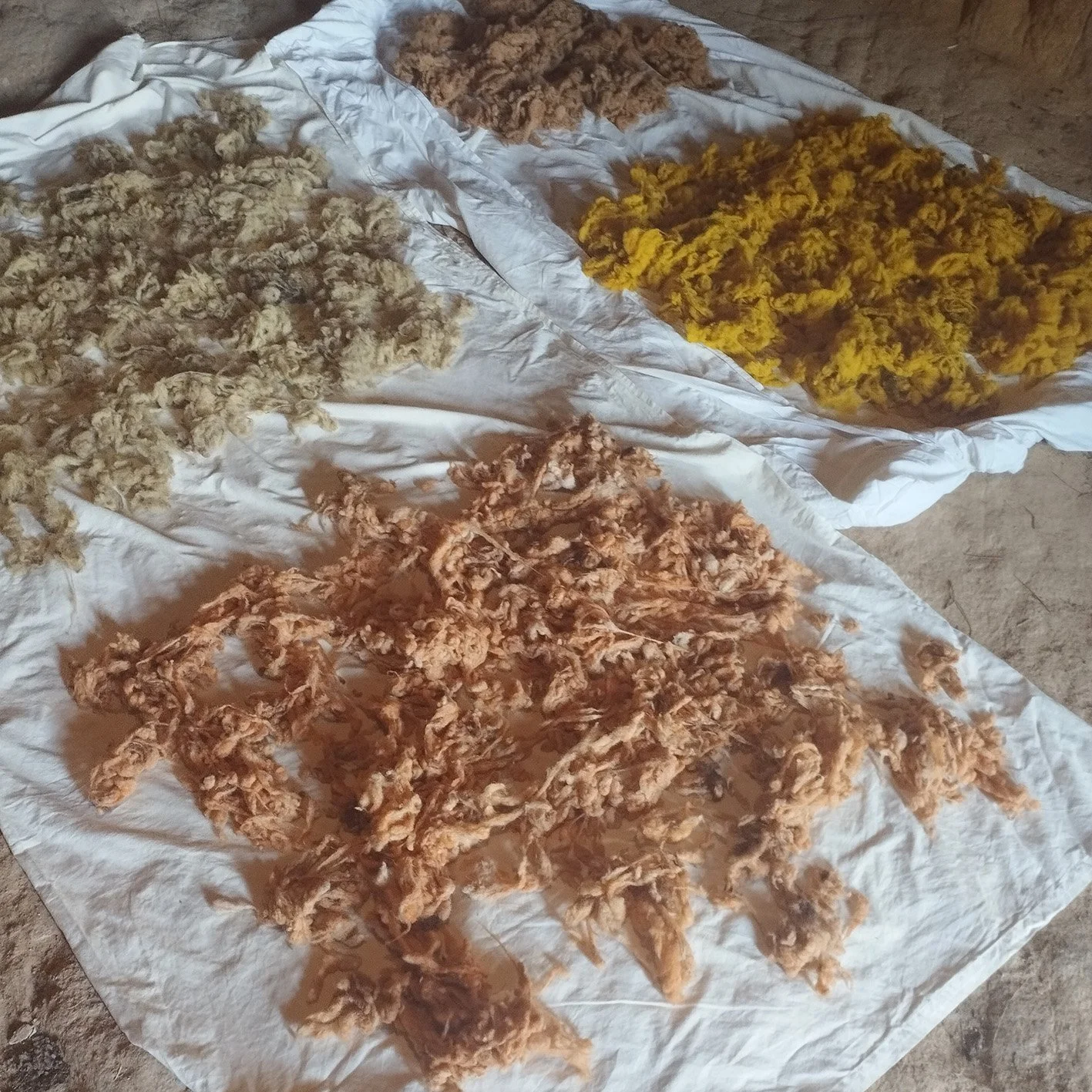
CHRYSALIS
A PROJECT BY NATHALIE REY
THE PROJECT
Nathalie Rey’s research explores wool production sites ranging from medieval mills to contemporary factories, tracing how the industry has evolved and how early practices reflected principles of circular economy. Through her interviews and fieldwork, she highlights the political and social significance of making production processes visible—countering the way marketing often hides them behind a polished aura of consumer goods. By focusing on these complex chains of interdependent actors, her work underscores the importance of valuing the people, territories, and working conditions involved. At the same time, it points to the possibility of reshaping global systems by reintroducing certain practices locally, strengthening social bonds, and restoring meaning and value to what we consume.
At Secant Space, Nathalie will further her research on textile and text-based practices, creating a body of work that reinterprets craft traditions in resonance with narratives of transmission and inheritance. This residency will also mark a shift toward a more personal production, opening the path to a future exhibition in Istanbul that will bring these explorations and experiments into focus.
Her current research project, Chrysalis, developed in collaboration with artist Eda Emirdağ, began at Montag Residency in Gönen, Balıkeşir, and continues through encounters with local craftswomen and women’s associations. The project explores the role of women in transmitting family narratives while reinterpreting textile know-how as a resource for resilience and transformation.
NATHALIE REY
*1976, lives and works in Barcelona (Spain)
Nathalie Rey’s practice unfolds at the intersection of memory, ecology, and social transformation. She is drawn to transitional spaces—cemeteries, abandoned factories, rural workshops, intimate domestic sites—where cycles of loss and renewal become visible. Her works explore how rituals are invented, how narratives are transmitted, and how fragile bonds between people and their environments can be reimagined. Although her subjects often touch on death, exile, or trauma, humor and play remain central to her process. Through collaboration with artisans, women’s associations, students, and local communities, she embraces the unpredictability of collective experience and opens space for dialogue and resilience.
Her work has been exhibited internationally in institutions, independent art spaces and festivals addressing topics such as exile, ecological cycles, and the deconstruction of historical narratives. Recent exhibitions include Local dialogues 2.0 at the Museum of Gönen, (Balıkeşir, 2025); L’Eté des Serpents at the Fondation Arranz-Bravo (Barcelona, 2025), Oyuna Davet at Offgrid Art Project (Istanbul, 2025); The Bride, the Maid and the Madwoman at the Chapel of Sant Corneli (Cardedeu, 2025); Live well, Die well for the itinerant contemporary art cycle “Temporals” at Guinardó Civic Center (Barcelona, 2025), which reimagines sustainable funeral practices and Panoptikum (2025–2027), a video and installation project on exclusion and marginalization between Istanbul and Beirut.
©Marina Vysotskaia








